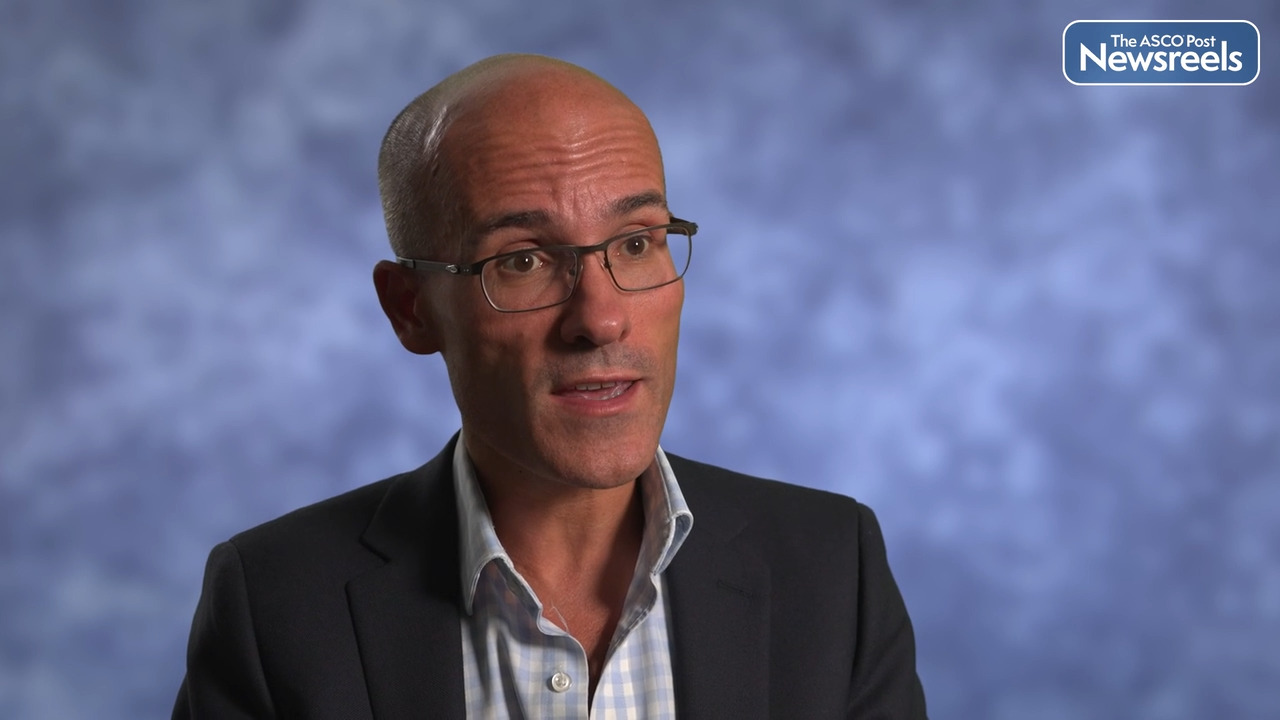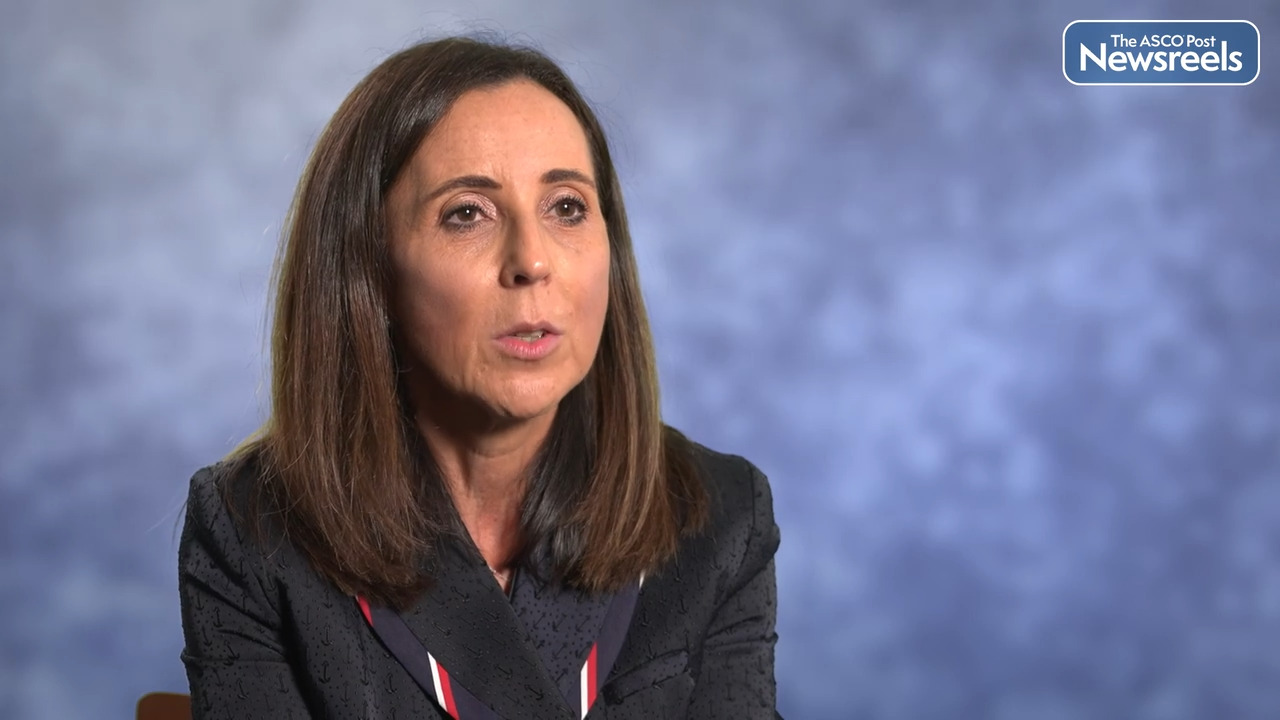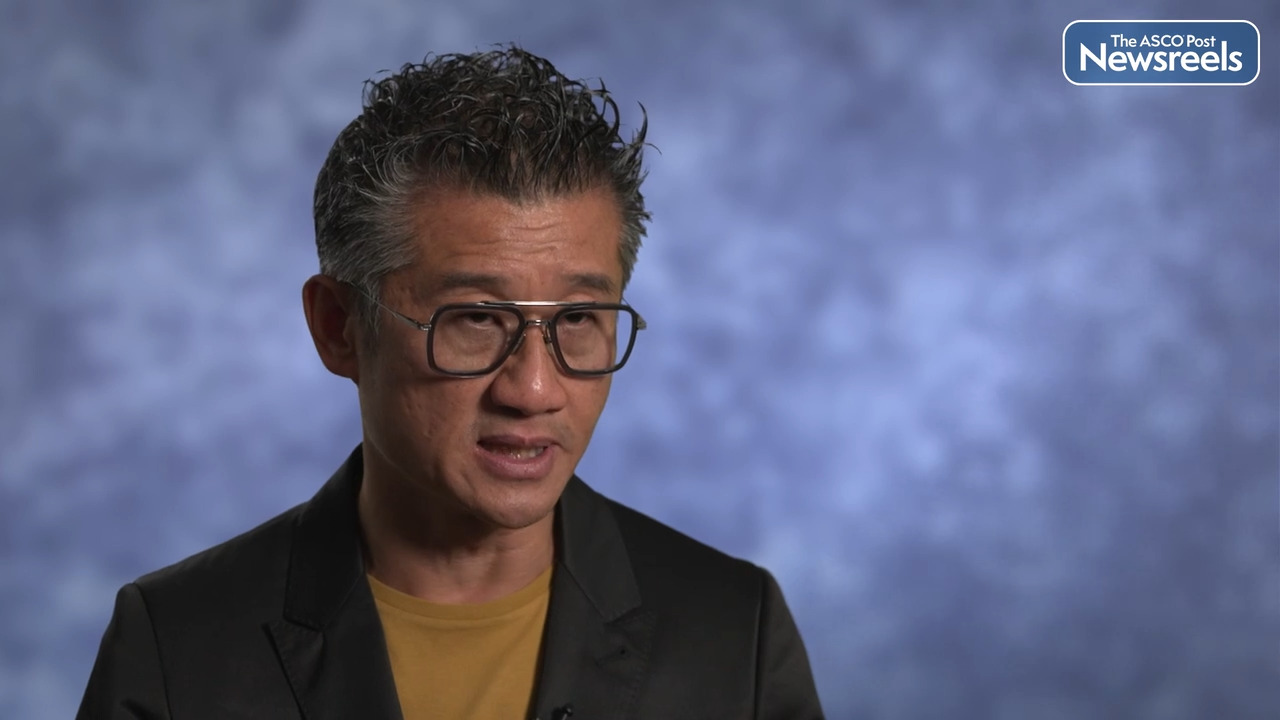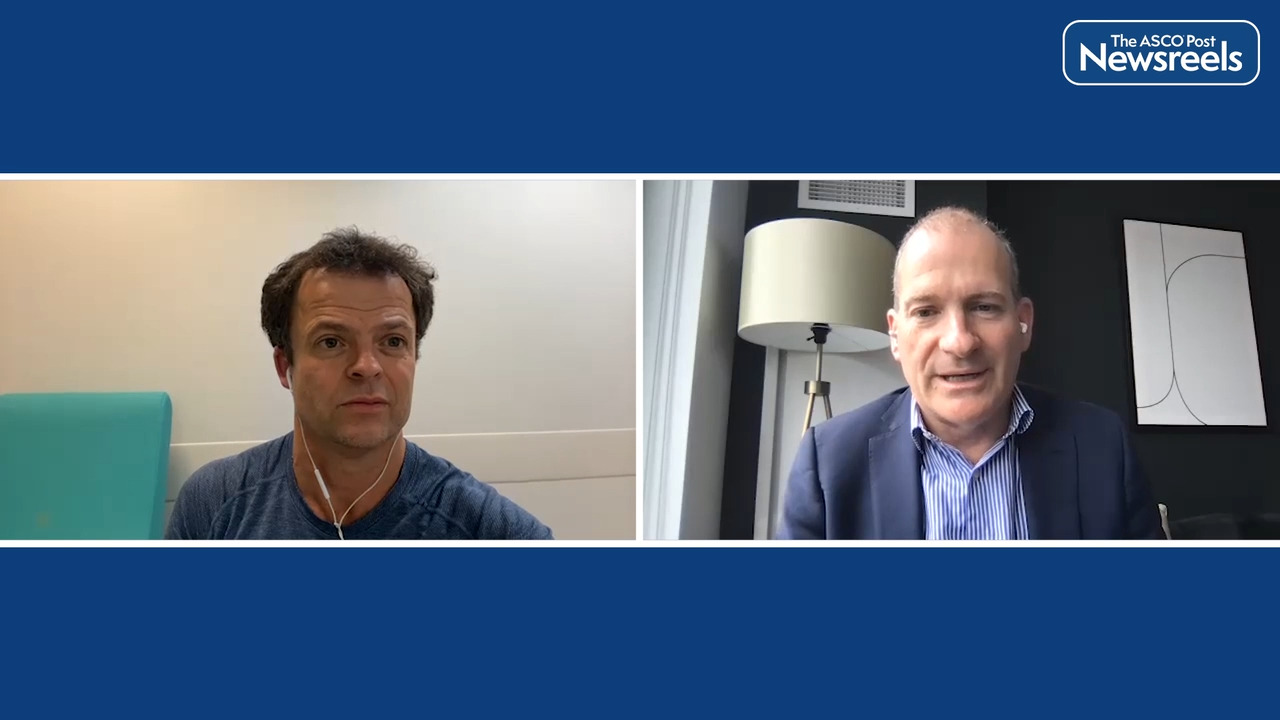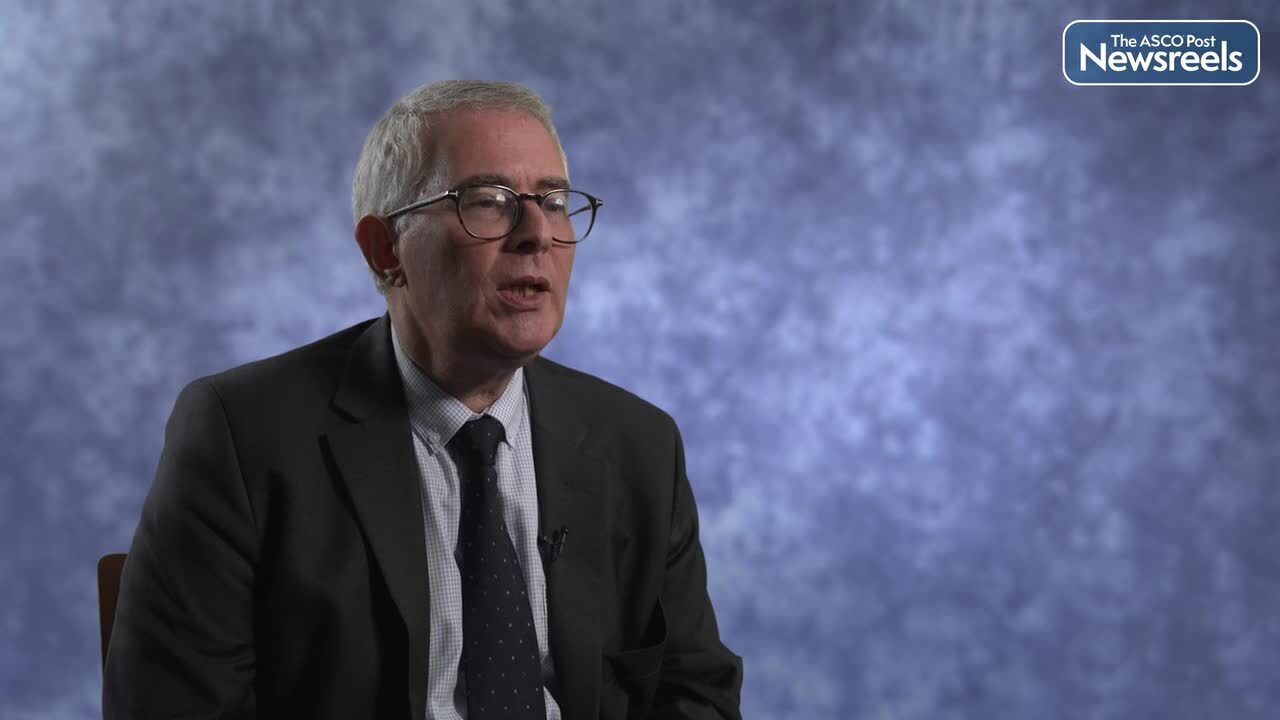Christelle de la Fouchardiere, MD, on Pancreatic Ductal Adenocarcinoma: Phase III Trial Results With Gemcitabine Plus Paclitaxel
ESMO Congress 2022
Christelle de la Fouchardiere, MD, of France’s Centre Léon Bérard, discusses phase III findings from the PRODIGE 65–UCGI 36–GEMPAX UNICANCER study, which evaluated whether the combination of gemcitabine and paclitaxel improves overall survival compared with gemcitabine alone in patients with metastatic pancreatic ductal adenocarcinoma after FOLFIRINOX failure or intolerance (Abstract LBA60).
Transcript
Disclaimer: This video transcript has not been proofread or edited and may contain errors.
The GEMPAX study is a phase III randomized trial comparing in patients with metastatic pancreatic ductal adenocarcinoma second-line therapy with gemcitabine and paclitaxel versus gemcitabine alone. The primary endpoint of this study was overhaul survival. Patients included were having metastatic pancreatic ductal adenocarcinoma, they were having experienced disease progression of failure after FOLFIRINOX, and maintaining a good ECOG performance status. They were randomized with a 2:1 ratio between GEMPAX, the weekly combination of gemcitabine and paclitaxel, 3 weeks over 4 versus gemcitabine alone. They stopped treatment at disease progression or toxicity. There were four stratification factors, ECOG PS, CA19-9 at baseline, first-line PFS, and neutrophil to lymphocyte ratio.
The main results of this study is that we didn't observe any significant benefit in overall survival with the addition of paclitaxel to gemcitabine versus gemcitabine alone in this setting. But this is the first prospective phase III trial evaluating second-line therapy after FOLFIRINOX and we observe a good improvement of progression-free survival, a significant one, and also a significant increase in overall response rate, which is highly clinically relevant in this poor prognosis disease. Furthermore, we observed more treatment discontinuation in the GEMPAX arm and also imbalance in third-line therapies that could explain the absence of overall survival benefit.
Then, we think that gemcitabine plus paclitaxel may be the standard second-line therapy after FOLFIRINOX failure or intolerance in metastatic pancreatic ductal adenocarcinoma patients. A substantial proportion of patients in this study received third-line therapies, reflecting the eye medical need, and also the requiring further clinical trials for this pathology.
The ASCO Post Staff
Charles Swanton, PhD, of The Francis Crick Institute, discusses a newly discovered mechanism of action for air pollution–induced non–small cell lung cancer in which particles linked to climate change appear to promote cancerous changes. The finding might pave the way for new potential approaches to lung cancer prevention and treatment (Abstract LBA1).
The ASCO Post Staff
Ana Oaknin, MD, PhD, of Barcelona’s Vall d’Hebron University Hospital, discusses an analysis of long-term survival from the EMPOWER-Cervical 1/GOG-3016/ENGOT-cx9 trial. Cemiplimab-rwlc is the first immunotherapy to demonstrate an overall survival benefit as a second-line monotherapy for patients with recurrent or metastatic cervical cancer previously treated with platinum-based chemotherapy but not immunotherapy. The benefit was sustained in this population (Abstract 519MO).
The ASCO Post Staff
Tony S.K. Mok, MD, of The Chinese University of Hong Kong, discusses two late-breaking abstracts presented at ESMO 2022: the phase II SUNRISE study, which compared sintilimab plus anlotinib vs platinum-based chemotherapy as first-line therapy in patients with metastatic non–small cell lung cancer (NSCLC); and the ORIENT-31 trial, which compared sintilimab with or without IBI305 (a bevacizumab biosimilar) plus chemotherapy in patients with EGFR-mutated nonsquamous NSCLC who experienced disease progression on EGFR tyrosine kinase inhibitors.
The ASCO Post Staff
Thomas Powles, MD, PhD, of Barts Health NHS Trust, Queen Mary University of London, and Christopher Sweeney, MBBS, of Dana-Farber Cancer Institute, discuss two important phase III studies on renal cell cancer (RCC) presented at ESMO 2022: IMmotion010, which examined the efficacy and safety of atezolizumab vs placebo as adjuvant therapy in patients with RCC at increased risk of recurrence after nephrectomy; and CheckMate 914, which compared nivolumab monotherapy or nivolumab combined with ipilimumab vs placebo in patients with localized disease who underwent radical or partial nephrectomy and who are at high risk of relapse. (Abstract LBA4 & LBA66).
The ASCO Post Staff
Gérard Zalcman, MD, PhD, of France’s Bichat-Claude Bernard Hospital, Assistance Publique–Hôpitaux de Paris, discusses phase III results from the IFCT-1701 trial, which explored the questions of whether to administer nivolumab plus ipilimumab for 6 months or whether to prolong the treatment in patients with advanced non–small cell lung cancer (Abstract 972O).
